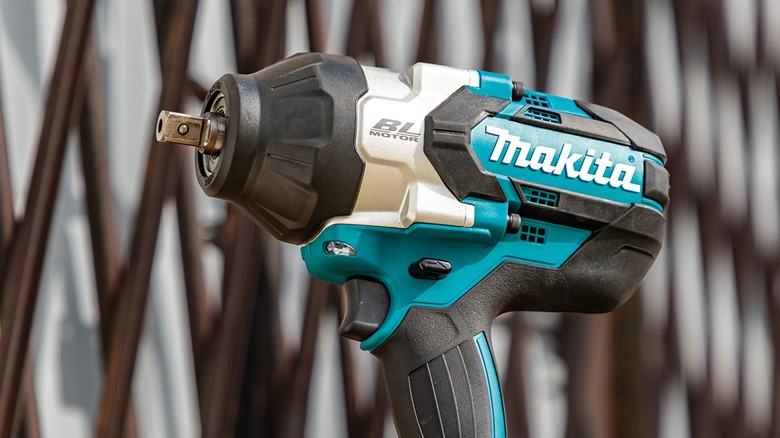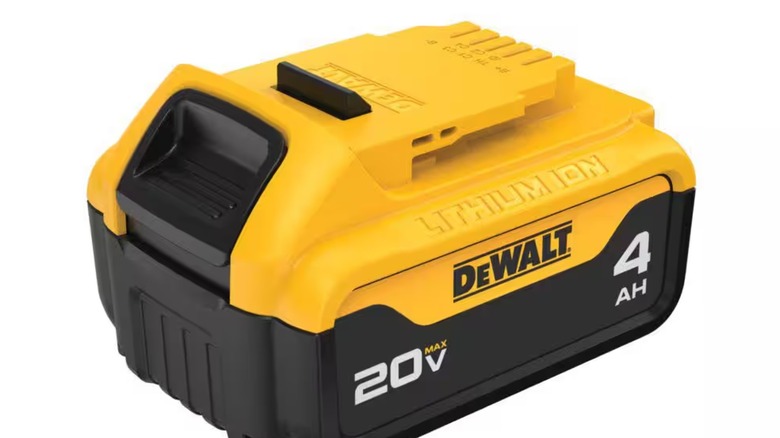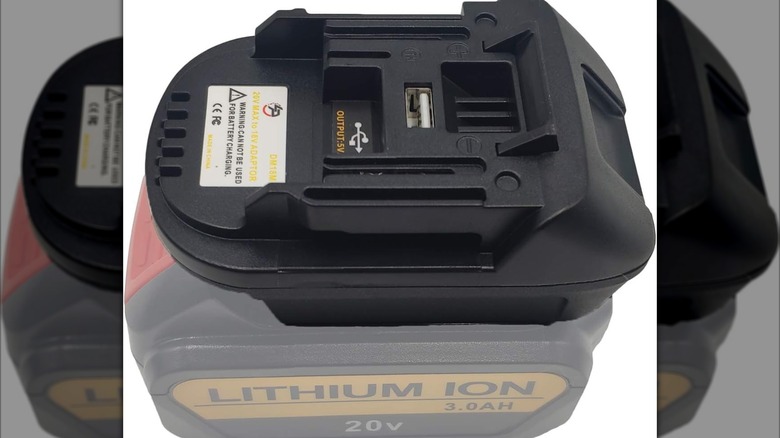Are DeWalt Batteries Compatible With Makita Tools?
We may receive a commission on purchases made from links.
Here's a hypothetical scenario: You've got plenty of DeWalt tools and batteries, but by chance, you happen to stumble into possession of a Makita-branded power tool. Maybe someone gifted it to you, maybe it was on a deep discount; the specifics don't matter. The point is that you've got a single Makita power tool surrounded by batteries from one of its competing brands. Can the two somehow work together, though?
As nice as it would be to simply plug one of those DeWalt batteries into that Makita tool, the fact is that neither of those brands (nor most power tool brands, for that matter) offers any form of inter-brand compatibility. It's not just a matter of legality or copyright, but simply that the physical connections on a DeWalt battery have no way of making contact with a Makita tool, at least on their own.
Technically, this limitation could be surmounted through the use of a third-party accessory such as a battery adapter. However, for the same reason brands don't mix offerings, using a third-party accessory like that is both discouraged by DeWalt and Makita and potentially hazardous to the health and longevity of your tools.
DeWalt batteries are not natively compatible with Makita tools
Just about every single power tool brand uses its own proprietary connection technology. Even if they seem similar at a glance, many small differences can completely make or break a battery's ability to deliver power. This is by design. By limiting their batteries to their own tools, brands like DeWalt avoid legal issues and unlicensed modifications.
The main problems preventing you from using a DeWalt battery on a Makita tool are the connection terminals and rails on top of the pack. A 20V 4Ah DeWalt battery has a comb-shaped connector with six notches housing the power terminals, as well as connecting rails with several distinct edges. Meanwhile, a Makita 18V 4Ah battery has a deep, recessed connector dotted with a multitude of small terminals. Its connecting rails are higher and slope downward.
The shapes of these two battery types, as well as their companion receivers on tools, are simply too different. A DeWalt battery would never fit on the rails of a Makita tool's receiver, and even if you could force it somehow, the mismatched terminals would prevent any power from flowing. It would basically be the same thing as duct-taping a brick to the bottom of your Makita tool.
Third-party brands make battery adapters, but using them poses risks
For legal reasons, a hardware brand like DeWalt cannot make batteries or accessories that directly interface with another brand's products, like Makita's. The same is true for many batteries and tools across the hardware ecosystem. For that reason, there's a small, unofficial industry of third-party manufacturers making accessories to bridge the gaps. Those brands often sell their wares on platforms like Amazon. These include brand-specific battery adapters, which can snap on top of one brand's batteries and attach to another brand's tool receivers.
If you used a DeWalt-to-Makita battery adapter, you could it to attach a DeWalt battery to a Makita tool, and it might even power up. However, this process is not without risk. DeWalt's batteries are equipped with onboard electronics that monitor, regulate, and optimize power flow. Normally, this system interfaces directly with the tool you're using to keep it (and you) safe during operation. When you connect a battery through an adapter, that safety system is bypassed, and power is forced through directly to the tool.
Depending on the kind of DeWalt battery and Makita tool you're using, there could be a disconnect between the battery's output and the tool's needs. This could cause weak performance or, in severe cases, burn out your tool's motor entirely. You also won't get a replacement if you use one of those third-party accessories, as both Dewalt and Makita don't cover those under their warranties. Remember, DeWalt doesn't sell its own products on Amazon, so any DeWalt-adjacent products you find on there should be treated with skepticism.


